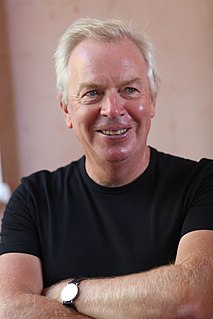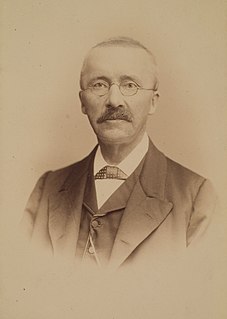A Quote by David Chipperfield
Most architects work in studios largely divorced from academia, as if ideas, criticism and historical research were irrelevant.
Quote Topics
Related Quotes
There are places in the world where it's easier than in the US to be a person who produces theory and not require the university for sustenance. And there are still places in the world where there is lively poetry communities largely divorced from academia. That's been destroyed in the US. In the US, famously, there were a lot of counter-spaces that lasted into the 60s and 70s, like the Black Arts Movement. They were systematically broken, often by the government, and the workshop arose in their place.
There is no need for historical research. The war didn't take place a thousand years ago. Over a million Iranians served at one time or another in the war fronts and most of them are living ordinary lives today and are available for interviews. These stories are largely unknown in Iran and when I tell them to my friends or students they usually laugh.
When I first started out in my career, I'd been a lit major in college so I didn't have a lot of choices. The traditional options were management consultant or investment banking, and I hadn't even taken an economics class so those were pretty much out. I didn't want to go into academia. For me, research and instinct were my unique tools that seemed to work best on a marketing and merchandizing path. It's kind of right-brain and left-brain.
There is only one Art, whose sole criterion is the power, the authenticity, the revelatory insight, the courage and suggestiveness with which it seeks its truth. ... Thus, from the standpoint of the work and its worth it is irrelevant to which political ideas the artist as a citizen claims allegiance, which ideas he would like to serve with his work or whether he holds any such ideas at all.
When...did it become irrational to dislike religion, any religion, even to dislike it vehemently? When did reason get redescribed as unreason? When were the fairy stories of the superstitious placed above criticism, beyond satire? A religion was not a race. It was an idea, and ideas stood (or fell) because they were strong enough (or too weak) to withstand criticism, not because they were shielded from it. Strong ideas welcomed dissent.
In the field of economics we maintain to this day some of the most primitive ideas, some of the most radically false ideas, some of the most absurd ideas a brain can hold. ... but all this give no uneasiness to the average brain. That long-suffering organ has been trained for more thousands of years than history can uncover to hold in unquestioning patience great blocks of irrelevant idiocy and large active lies.







































